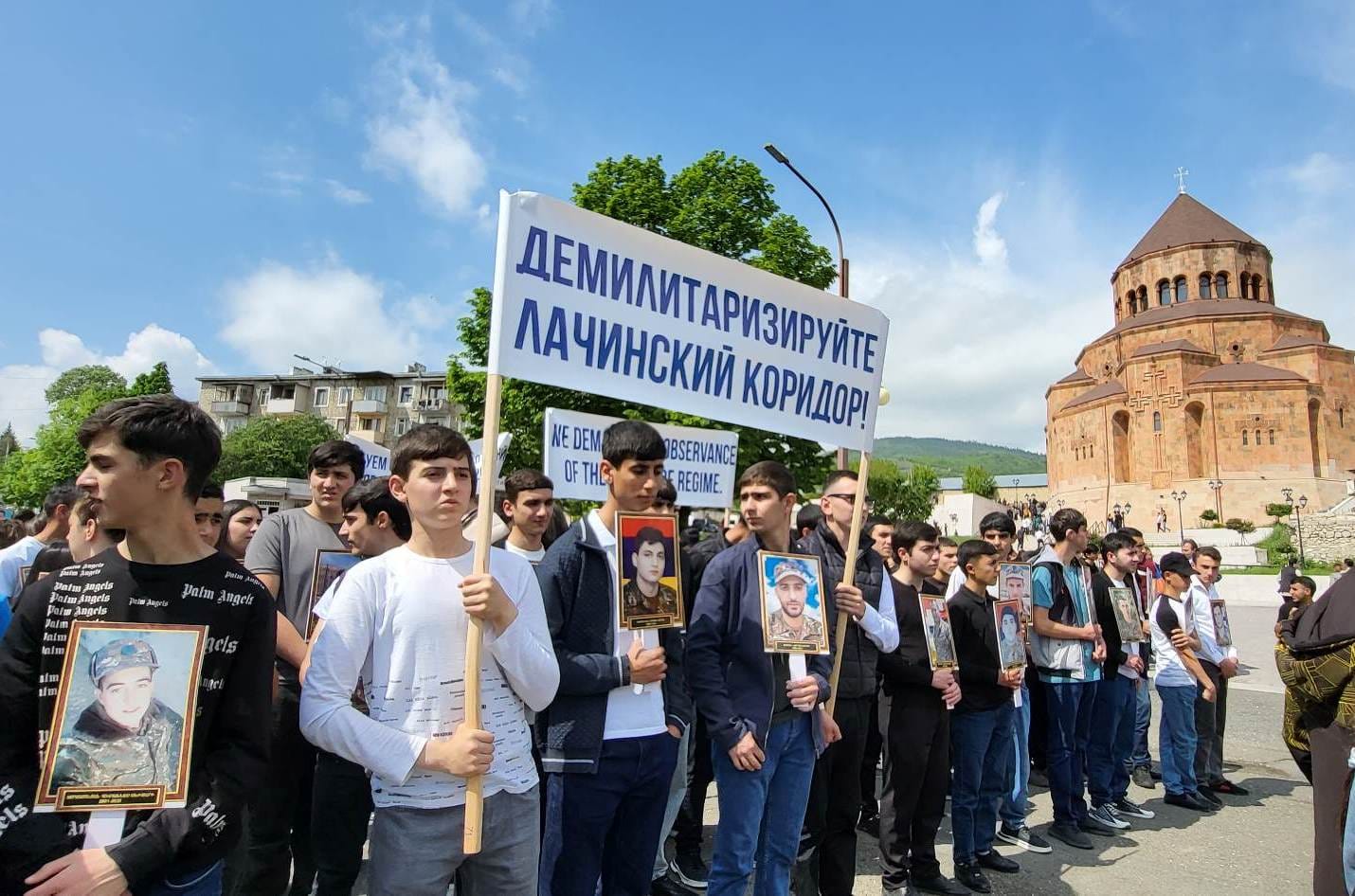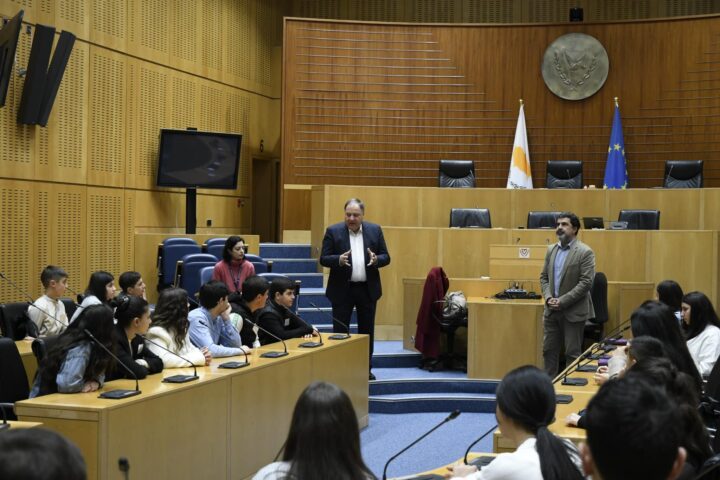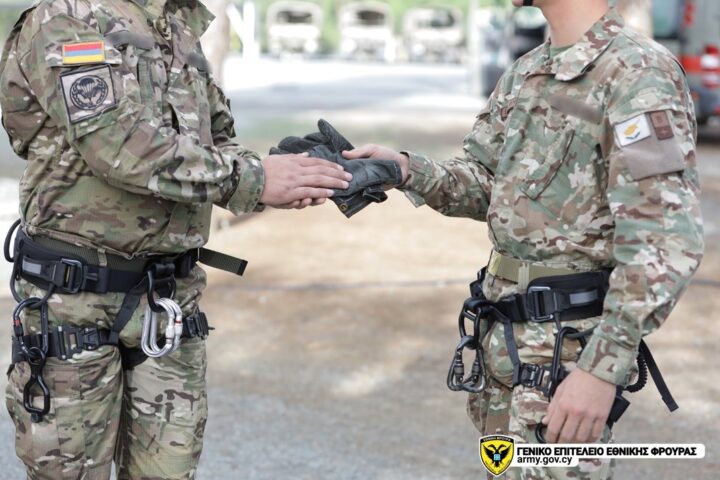A creeping genocide is unfolding slowly before our eyes.
For over seven months, 120,000 Armenians in Artsakh (Nagorno-Karabakh) remain under complete blockade, with no food, medicine, fuel, gas, or electricity.
The only lifeline connecting Artsakh to Armenia was initially blocked by Azeri government-sponsored “peace-advocating” fake “eco-activists” on December 12, 2022.
Azerbaijan officially institutionalised the blockage of the road by an illegal checkpoint installation on April 23, 2023, grossly violating its international obligations.
It continues to demonstrate a willful disregard for the provisions of the Trilateral Statement of November 9, 2020, the ECHR ruling of December 21, 2023, and ICJ orders issued February 22 and July 6, 2023, calling on Azerbaijan to urgently “take all measures at its disposal to ensure unimpeded movement of persons, vehicles and cargo along the Lachin Corridor in both directions.”
Moreover, Baku is presenting the latter decisions of the international courts willfully to delude the international community and continue its policy of starving the population of Artsakh.
It blatantly ignores the calls by the UN High Commissioner for Human Rights, Amnesty International, Human Rights Watch, Parliamentary Assembly of Council of Europe, European Parliament, and other international organisations and numerous states.
Azerbaijan’s illegal actions persist despite those demands and appeals.
Encircled and sieged by Azerbaijan, the 120,000 Armenians, including 30,000 children and 20,000 elderly, survive merely on scarce local produce.
No consignment of goods or medicine has been allowed to enter the region for over a month.
Healthcare, public transport and public and business offices have been paralysed.
Agricultural fields cannot be harvested because of the lack of fuel.
Pregnant women and children are malnourished. No fruits or vegetables can be imported to Artsakh.
Death rates are higher than ever.
Europe is watching; sometimes, statements are made.
It tries hard to maintain “parity.”
It calls “on both sides” to contribute to peace. It describes the situation as unsustainable and in “no one’s interest.”
In the meantime, the total blockade continues by a country which some have labelled as a “reliable energy partner”, while international non-governmental organisations have a consensus that it is a “consolidated authoritarian regime.”
A “sustainable blockade” is making the lives of Armenians living there more unbearable.
Moreover, some are considering the Baku proposed “integration” as a solution to the problem. The problem encompasses three wars imposed by the “integrator.”
Three wars were unleashed to eliminate Armenians, which left thousands dead, tortured and many POWs still illegally held in Azerbaijani prisons.
Add to that the massacres and forced displacement of all Armenians living in Azerbaijan in 1988-1991.
Has anybody ever asked why Azerbaijan has no “integrated” Armenians?
How many integrated Armenians has anyone met in Baku, Sumgait, Kirovabad or Nakhijevan? Not only Armenians but even the graves of their dead have been harassed – demolished and erased.
The destruction of thousands of cross-stones in Nakhijevan’s medieval cemetery proves that.
The deliberate and planned destruction of cemeteries and churches in the territories Azerbaijan currently controls speak for themselves.
Ethnic cleansing
Any Armenian trace is being erased. It is part of the creeping genocide in action.
We are talking about providing the rights and security of the Armenians of Nagorno-Karabakh as one of the key elements of the ongoing negotiations.
So far, though, there is no sign that Azerbaijan is ready to respect these fundamental human rights.
The conflict cannot have an enduring and just solution by such means.
Enduring peace is equivalent to conciliatory peace and not punitive, which has historically proven to be short-term.
Humiliation, subjugation, and ethnic cleansing merely postpone the vicious cycle of violence. Azerbaijan has juxtaposed its extremely dangerous “quest for domination” (power to coerce and destruction) against the Armenian side’s understandable “quest for security.”
Azerbaijan is not ensuring its security interests by attempting to ethnically cleanse Armenians in Nagorno-Karabakh, occupying territories of the Republic of Armenia, and making further territorial claims against the sovereignty of Armenia.
This attempt of self-aggrandisement and self-extension to the detriment of Armenia will enmesh the Caucasus region into long-term instability and catastrophe with very unpredictable results. This is not in the interest of any major international player.
Azerbaijan objects to any international humanitarian assistance to be delivered to Nagorno-Karabakh.
For Azerbaijan, statements demanding the opening of the Lachin Corridor ring hollow: background noise as it proceeds undeterred and with impunity to employ measures of obscene inhumanity to forcefully subjugate the people of Nagorno-Karabakh to Azerbaijan, expel them from their native homeland, or destroy them wholesale.
The evidence is overwhelming: the ongoing blockade of Artsakh and Azerbaijan’s intentional disruption of vital infrastructure.
As well as the regular and consistent armed attacks against the Artsakh Armenians are specifically engineered to ethnically cleanse Nagorno-Karabakh of its indigenous Armenians through physical and psychological intimidation and unbearable, indeed inhumane, living conditions.
Do not be hoodwinked: Azerbaijan’s rhetoric of “integration” is actually one of abject subjugation or worse.
In this reality, it is absurd to demand that a victim of a targeted and total blockade—malnourished and starving—negotiate tete-a-tete with its very torturer without any international mechanism, international presence, or international guarantees.
Realpolitik in an international context is about states acting to pursue their own interests. Most of the time, morality and human rights outside their own nations are seen in the context of their own national interests.
Energy is important. How about responsibility?
The Responsibility to Protect – R2P- is an international norm that seeks to protect populations from genocide, war crimes, crimes against humanity, and ethnic cleansing.
Indifference to the fate of others, under the false pretence of neutrality, is an obsolete idea. Moreover, it is a short-sighted and immoral approach.
When profit and power have driven policies at the cost of the most fundamental and preached values, the result has always been more instability, destruction, and lives lost.
By playing a deaf ear to the creeping genocide unfolding before your eyes, those who have leverage on Azerbaijan, but prefer negligence instead, may become a silent participant and enabler of the green light to new crimes against humanity.
Resolute and tangible steps must be taken as soon as possible.
Every hour, the situation becomes untenable and explosive.
Global decision-makers, collectively and individually, are faced with the moral problem of choosing first the value that deserves protection by all means – the right to life, which is the guarantee it offers to values like liberty, justice, and peace.
Energy infatuation will dissipate in time; moral stain most probably will not.
Liberal humanitarianism still has a chance.
For our people, any hope for stability and security demands, first of all, human survival.
Open and unhindered access through the Lachin Corridor guarantees human survival.
Tigran Mkrtchyan is the Ambassador of the Republic of Armenia to Cyprus, Greece, and Albania










